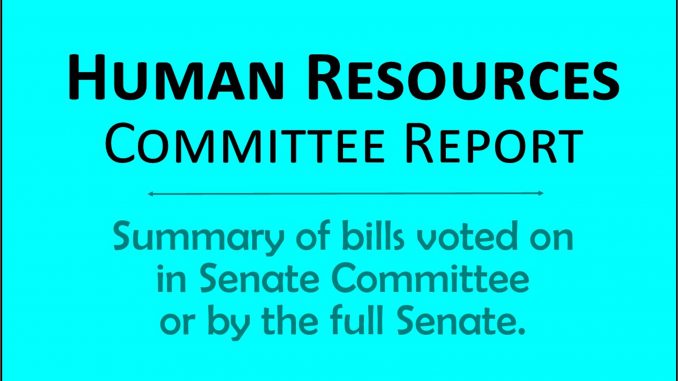
On this page
COMMITTEE ACTION:
SF 2169 – Assisted Reproduction Fraud
SF 2169 creates the “Fraud in Assisted Reproduction Act.” It prohibits a person from engaging in a practice the person knows, or reasonably should have known, is providing false information to a patient related to assisted reproduction procedure or treatment. False information can be related to any of these (a) human reproductive material used or provided; (b) the identify of a donor of human reproductive material; (c) a donor’s medical history or family history. A person who violates this section is guilty of a Class “D” felony. (A Class D felony is punishable by confinement for no more than five years and a fine of at least $1,025, but not more than $10,245.)
The bill prohibits a physician from using human reproductive material for assisted reproduction other than that agreed to in writing by the patient or providing a patient with human reproductive material other than that to which the patient expressly consented in writing or using human reproductive material without the donor’s consent. A violation of this section by a health care provider or facility is a class “C” felony. (A class “C” felony is punishable by confinement for no more than 10 years and a fine of at least $1,370 but not more than $13,660).
It is not a defense that a patient expressly consented in writing to the use of material from an anonymous donor.
A violation of the provisions of the bill by a physician, health care professional or health facility is grounds for denial of an application for, denial of renewal of, or revocation of any license, permit or certification. A violation also constitutes unprofessional conduct and subjects the provider to discipline, revocation or suspension of license.
The bill provides for a private cause of action for compensatory and punitive damages for a patient who conceives or conceives and gives birth, spouse of the patient, a child or a donor involved in a violation of the bill. A separate cause of action can be claimed for each conception or conception and birth. In addition to compensatory and punitive damages awarded, the court must award the prevailing plaintiff the costs of any applicable fertility treatments, court costs and reasonable attorney fees. The bill includes statutes of limitations.
The bill also provides that a physician commits sexual abuse in the third degree when the physician uses their own human reproductive material in the assisted reproduction procedure. Sexual abuse in the third degree is also a Class “C.”
[2/16: short form]
SF 2210 – Health Care Employment Agencies
SF 2210 attempts to level the playing field by holding staffing agencies (temp agencies) accountable for the workers they’re providing to health care providers. The bill holds agencies to the same standards as providers and ensures their employees meet all licensing, certification and background check requirements. Each agency must register with Department of Inspections and Appeals (DIA) annually and pay a fee of $500 for each location of the agency. Failure to comply is subject to denial or revocation of registration for one year and a penalty of $500 to $5000.
Currently, many providers experience situations where agencies send workers that do not meet these requirements. When this occurs, providers are solely liable and the quality of care for the patients is put at risk. The bill does not cap wages for any employee, but rather removes the barriers of non-competes that prevent direct care workers from being able to move freely from employer to employer. Medicare/Medicaid providers must report how state and federal funds are used.
[2/16: short form]
SF 2214 – Therapeutic Foster Care Study Committee
SF 2214 directs the Department of Human Services to convene a therapeutic foster care services study committee during the 2022 legislative interim. The work group is to examine the issues relating to providing therapeutic foster care services in a family-like setting by a foster care parent with specialized training and supports. The work group is to examine the appropriate population; licensing requirements; training requirements; number of children that may need the service; costs to initiate and maintain the service; potential funding sources; and how therapeutic foster care services operate in other states. A report is due to the Governor and Legislature by December 15, 2022.
[2/16: short form]
SSB 3116 – Mental Health and Disability Services (MHDS) Region cash reserves
SSB 3116 increases the amount of cash reserves a Mental Health and Disability Services (MHDS) Region can maintain before the reserve is reduced and the MHDS region is disqualified from receiving quarterly payments and funding from the MHDS incentive fund. Beginning July 1, 2023, the cash reserves cannot exceed 10% of the actual expenditures for the previous fiscal year. Last year’s SF 619 set the cash reserve amount at 5%.
[2/16: short form]
